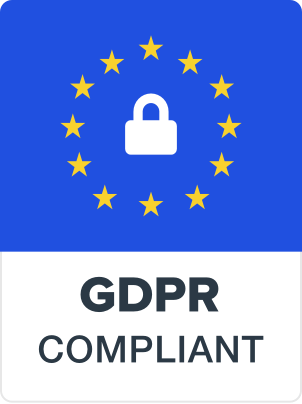The Role of Internal Audits and Workflow Tracking In Enhancing Organizational Efficiency

August 31 , 2023
In today’s rapidly evolving business landscape, ensuring the smooth functioning of an organization is crucial for sustained growth and success. One of the key tools at an organization’s disposal for achieving this is the internal audit process, supported by effective workflow tracking and the use of comprehensive audit checklists. In this weblog, we will delve into the significance of internal audits, the importance of tracking workflows, and the role of audit checklists in streamlining processes and enhancing overall operational efficiency.
The Power of Internal Audits

Internal audits are systematic and independent examinations of an organization’s operations, processes, and systems. These audits play a vital role in evaluating the effectiveness of internal controls, risk management, and compliance with established policies and regulations. These assessments, conducted by internal auditors, provide a clear picture of an organization’s strengths, weaknesses, and areas needing improvement.
One of the primary benefits of internal audits is their ability to identify and mitigate risks before they escalate into larger issues. By thoroughly reviewing financial records, operational procedures, and internal policies, auditors can uncover vulnerabilities and offer recommendations to strengthen controls. This proactive approach not only safeguards the organization’s assets but also ensures adherence to industry standards and legal requirements.
Track Workflow for Seamless Operations
While internal audits focus on reviewing various aspects of an organization, tracking workflows adds another layer of efficiency to the equation. Workflow tracking involves monitoring the progression of tasks and processes from initiation to completion. By implementing workflow tracking systems or software, organizations can gain real-time insights into their operations, identify bottlenecks, and make informed decisions to optimize resource allocation.
Workflow tracking offers several advantages. It provides transparency into ongoing projects, allowing stakeholders to stay informed about the status of tasks. This transparency, in turn, fosters collaboration and accountability among team members. Moreover, workflow tracking enables data-driven decision-making, as historical performance data can be analyzed to identify patterns and trends, leading to informed process enhancements.
The Role of Audit Checklists

An integral part of the internal audit process is the use of audit checklists. An audit checklist is a structured tool that outlines the key areas to be reviewed during an audit. It serves as a guide for auditors, ensuring that no critical aspects are overlooked during the assessment. These checklists are tailored to the organization’s specific industry, regulatory requirements, and internal policies.
Audit checklists bring a structured approach to internal audits. They assist auditors in systematically examining each area, from financial statements to operational procedures, and help in documenting findings and recommendations. By following a standardized checklist, auditors reduce the risk of omitting important elements and ensure consistency across audits conducted over time.
Enhancing Organizational Efficiency
The synergy between internal audits, workflow tracking, and audit checklists is evident in their combined ability to enhance organizational efficiency. When these elements work in harmony, organizations can achieve several notable outcomes:
- Streamlined Processes: Workflow tracking allows organizations to identify inefficiencies and bottlenecks, which can be addressed based on insights from internal audits. As audit recommendations are implemented, processes become more streamlined, reducing redundancies and delays.
- Timely Issue Resolution: Workflow tracking enables the identification of issues in real-time. Internal audits then delve deeper into these issues, providing recommendations for resolution. This proactive approach prevents problems from escalating and affecting overall operations.
- Informed Decision-Making: Workflow tracking systems provide data that can be used to make informed decisions. Coupled with insights from internal audits, organizations can confidently make strategic choices that align with their goals and objectives.
- Risk Mitigation: By conducting regular internal audits and following comprehensive audit checklists, organizations can identify and address potential risks before they escalate. This proactive approach to risk management safeguards the organization’s reputation and financial stability.
- Continuous Improvement: Internal audits not only identify areas for improvement but also track the effectiveness of implemented changes over time. This continuous improvement cycle, supported by workflow tracking, ensures that the organization’s operations remain optimized.
Diversifying Organizational Excellence with Tailored Applications of Internal Audits and Workflow Tracking

While the core principles of internal audits, workflow tracking, and audit checklists remain consistent across industries, their applications, and benefits can be uniquely tailored to meet the specific needs of different sectors. Let’s explore how these services contribute to operational efficiency in various industries.
-
Healthcare:
In the healthcare industry, where patient care and safety are paramount, internal audits play a crucial role in ensuring compliance with medical standards and regulations. By conducting regular audits of medical procedures, record-keeping, and data security measures, healthcare organizations can identify gaps and vulnerabilities. Workflow tracking is equally vital, enabling healthcare providers to monitor patient journeys, track treatment plans, and ensure seamless communication among medical staff. Audit checklists specific to healthcare regulations guide auditors in reviewing patient care, data privacy, and facility hygiene, resulting in improved patient outcomes and regulatory compliance.
-
Manufacturing:

In the manufacturing sector, internal audits focus on quality control, supply chain management, and production processes. Auditors examine production lines, equipment maintenance, and adherence to safety protocols. Workflow tracking helps monitor inventory levels, production timelines, and resource allocation. By integrating audit checklists tailored to manufacturing standards, organizations can enhance product quality, reduce waste, and optimize resource utilization. This comprehensive approach contributes to leaner operations and increased customer satisfaction.
-
Financial Services:
Financial institutions rely heavily on internal audits to ensure accurate financial reporting, risk management, and regulatory compliance. Auditors review financial transactions, anti-money laundering measures, and cybersecurity protocols. Workflow tracking is vital for monitoring transaction processes, fraud detection, and customer interactions. Audit checklists specific to financial regulations guide auditors in evaluating transaction accuracy, risk exposure, and compliance with legal requirements. This integrated approach fosters transparency, safeguards assets, and maintains the trust of clients and stakeholders.
-
Information Technology:
In the fast-paced IT industry, internal audits focus on data security, software development processes, and IT infrastructure management. Auditors assess data handling procedures, system vulnerabilities, and adherence to cybersecurity standards. Workflow tracking helps IT teams manage project timelines, monitor software releases, and address technical issues promptly. According to Statista, revenue in the IT Services market is projected to reach US$1,241.00bn in 2023.
Audit checklists customized for IT regulations guide auditors in evaluating data protection measures, software quality, and disaster recovery plans. This comprehensive approach enhances data integrity, minimizes downtime, and ensures robust cybersecurity.
-
Hospitality:
The hospitality industry relies on internal audits to maintain service quality, uphold hygiene standards, and optimize guest experiences. Auditors review guest services, housekeeping protocols, and food safety measures. Workflow tracking assists in managing reservations, tracking guest preferences, and coordinating staff tasks. Audit checklists tailored to hospitality regulations guide auditors in assessing guest satisfaction, facility cleanliness, and compliance with health and safety guidelines. This holistic approach results in memorable guest experiences and positive online reviews.
-
Retail:
Retail organizations benefit from internal audits focusing on inventory management, customer service, and sales processes. Auditors examine inventory accuracy, pricing consistency, and adherence to sales procedures. Workflow tracking helps monitor stock levels, track customer interactions, and optimize merchandising strategies. Audit checklists customized for retail standards guide auditors in evaluating pricing accuracy, promotional campaigns, and customer satisfaction metrics. This integrated approach enhances inventory turnover, boosts sales, and cultivates customer loyalty.
In today’s diverse and dynamic business landscape, the applications of internal audits, workflow tracking, and audit checklists are far-reaching, spanning across various industries. While the fundamental principles remain consistent, the customization of these services to meet industry-specific requirements showcases their adaptability and relevance.
The synergy between internal audits, workflow, and checklists paves the way for enhanced operational efficiency, risk mitigation. As organizations navigate challenges and opportunities unique to their industries, embracing these tools empowers them to optimize processes. It also uphold standards, and deliver exceptional value to their clients, customers, and stakeholders.
From healthcare to manufacturing, financial services to hospitality, the incorporation of tailored, and industry-specific audit checklists enables organizations to not only thrive within their sectors. It also contribute to the broader landscape of organizational excellence. As industries continue to evolve, the strategic integration of these services will undoubtedly remain a cornerstone of successful and forward-thinking businesses.
Conclusion
In today’s competitive business landscape, achieving and maintaining operational efficiency is a paramount goal for organizations. The combination of internal audits, workflow tracking, and audit checklists offers a robust framework for achieving this objective. Internal audits provide insights into the organization’s strengths and weaknesses, while workflow tracking ensures transparency, collaboration, and data-driven decision-making. As a structured tool, audit checklists guide auditors through the assessment process and contribute to consistency and thoroughness.
By harnessing the power of these elements, organizations can streamline their processes, address issues proactively, and make informed decisions that contribute to sustained growth and success. As industries continue to evolve, embracing the synergy between internal audits, workflow tracking, and audit checklists will undoubtedly remain a key driver of organizational excellence.
Copyright © 2024 Uraudits.com. All Rights Reserved. Privacy Policy | Legal | Terms of Use
Privacy Overview
| Cookie | Duration | Description |
|---|---|---|
| cookielawinfo-checbox-analytics | 11 months | This cookie is set by GDPR Cookie Consent plugin. The cookie is used to store the user consent for the cookies in the category "Analytics". |
| cookielawinfo-checbox-functional | 11 months | The cookie is set by GDPR cookie consent to record the user consent for the cookies in the category "Functional". |
| cookielawinfo-checbox-others | 11 months | This cookie is set by GDPR Cookie Consent plugin. The cookie is used to store the user consent for the cookies in the category "Other. |
| cookielawinfo-checkbox-necessary | 11 months | This cookie is set by GDPR Cookie Consent plugin. The cookies is used to store the user consent for the cookies in the category "Necessary". |
| cookielawinfo-checkbox-performance | 11 months | This cookie is set by GDPR Cookie Consent plugin. The cookie is used to store the user consent for the cookies in the category "Performance". |
| viewed_cookie_policy | 11 months | The cookie is set by the GDPR Cookie Consent plugin and is used to store whether or not user has consented to the use of cookies. It does not store any personal data. |









